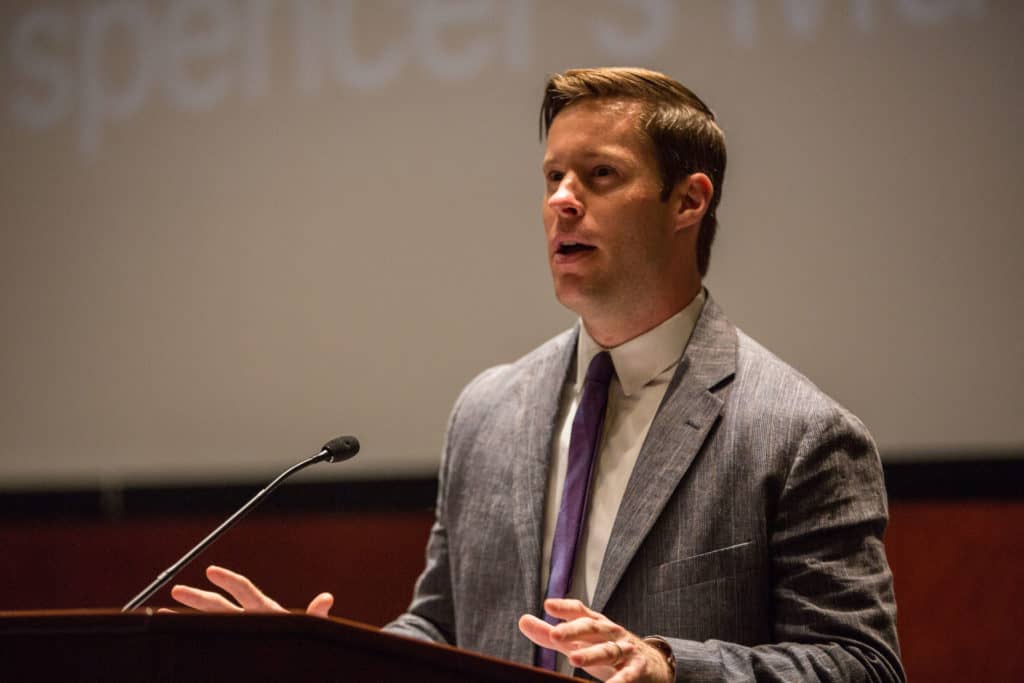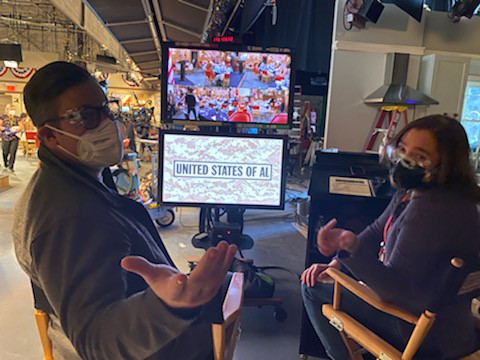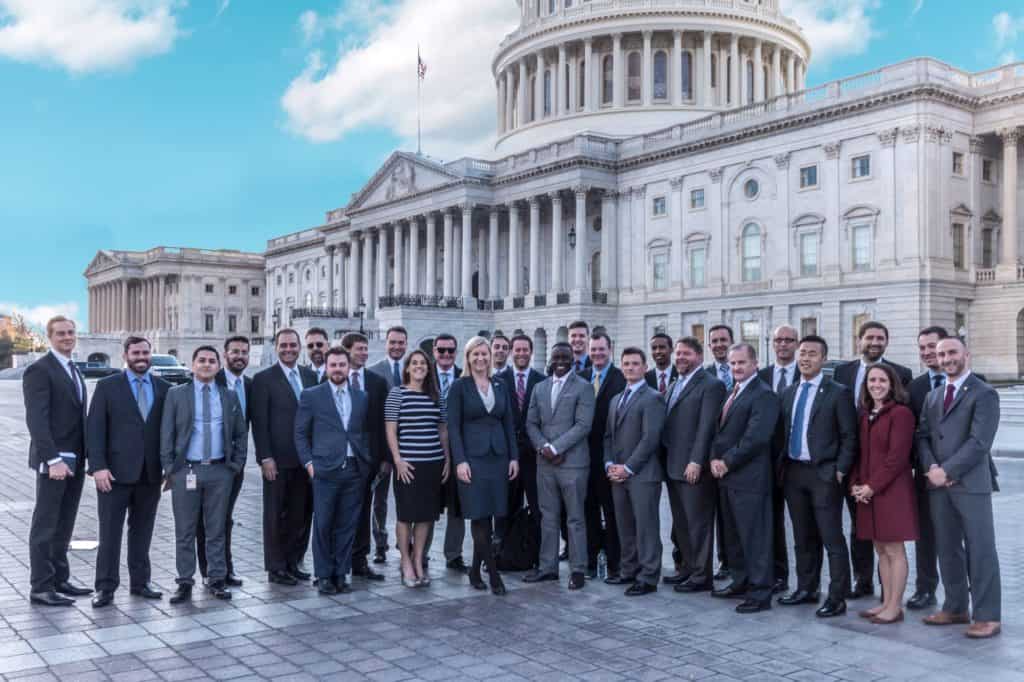By: Eric Ruble
Few people get the chance to advocate for policy change through a national TV program, and Chase Millsap (MPP ‘16) certainly isn’t going to waste his.
Millsap, a veteran who served three tours in Iraq before enrolling in the USC Price School of Public Policy, gained national attention in 2016 when he advocated to get a refugee visa for an Iraqi military officer who saved his life a decade prior.

Today, Millsap is taking his military experience to Hollywood in an effort to bring the often-overlooked topic of special immigrant visas (SIVs) to millions of Americans as a consultant and writer on “United States of Al,” a new sitcom on CBS.
The show features Al, an Afghan refugee adjusting to life in the U.S. after serving as an interpreter alongside American troops.
“We’re able to inject policy into what is a comedy,” Millsap said. “We’ve been able to successfully bring two worlds together — the entertainment world and the policy world — and do it in a way where we have fantastic storytelling and it’s just entertaining.”
Millsap is also the current chief content officer at We Are The Mighty, a media production company that focuses on military and veteran stories.
“It’s about creating content that matters for people. That’s where I’ve really been able to put on my Price hat and say, ‘OK, what are we trying to get out of this and why does it matter?’” he said.

In these creative roles, Millsap said he draws upon his experience in the Master’s of Public Policy program, particularly when trying to present viewers with a cogent message about bringing military interpreters to the U.S.
“I wouldn’t be able to do this without Price. They taught me the mechanics around how to make sure that your policy is based on research, that it’s based on statistical analysis and that it’s written well so that people can understand it.”
Millsap specifically pointed to lessons he learned in Professor T.J. McCarthy’s class: Methods for Policy Analysis.
“In the military, before a jump or a dive, we ‘pressure test’ our equipment. That same logic applies to policy. The statistical analysis skills I learned under [McCarthy] allow me to ‘pressure test’ ideas before they become set in stone,” Millsap said.
McCarthy, Vice Chair of the Department of Public Policy, keeps in touch with his former student. McCarthy said Millsap provided his class with a unique perspective on foreign policy and bucked any misconceptions that MPP Graduates have to enter a “cookie-cutter” career upon graduation.
“He came in with a very clear idea of what he wanted to do,” McCarthy said. “It’s rewarding to see people finding ways to really maximize what they can do with [an MPP] and not just sort of fitting themselves into some existing structure.”
Methods for Policy Analysis focuses heavily on quantitative material and dives into how to digest complex data, which Millsap said was invaluable.

An estimated 17,000 Afghan interpreters are currently awaiting a decision on their SIV applications. “I learned that while policies are informed by data, it’s the ability to study the data that really matters. One of the biggest skills that I use today is being able to ask not only where the data come from but how they are being used,” Millsap said of McCarthy’s class.
Millsap hopes the data he collected firsthand as a service member and the messages he worked to translate into television scripts will get Americans to not only tune in, but be inspired by what they watch.
Millsap says the show’s producers — including Chuck Lorre, Maria Ferrari and USC School of Cinematic Arts Adjunct Professor David Goetsch — have hosted a number of panels with interpreters and veterans. They also created a PSA to educate viewers on about SIVs.
“I would have never thought CBS would get in the SIV policy issue, but they are,” Millsap said. “The team is committed to great storytelling that is grounded in real-world experiences.”
The story Millsap helped create may be fictional, but he hopes its visibility will drive tangible change for those seeking SIVs.
“Policy comes back to people, right? It’s about solving problems for people,” he said.